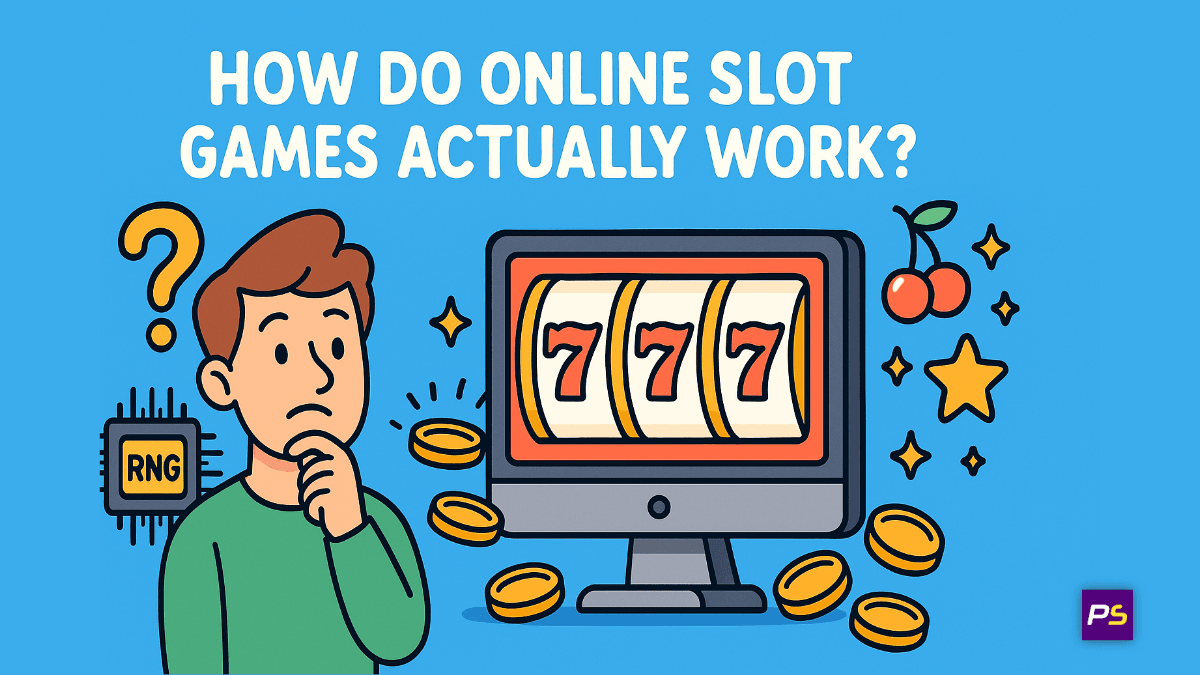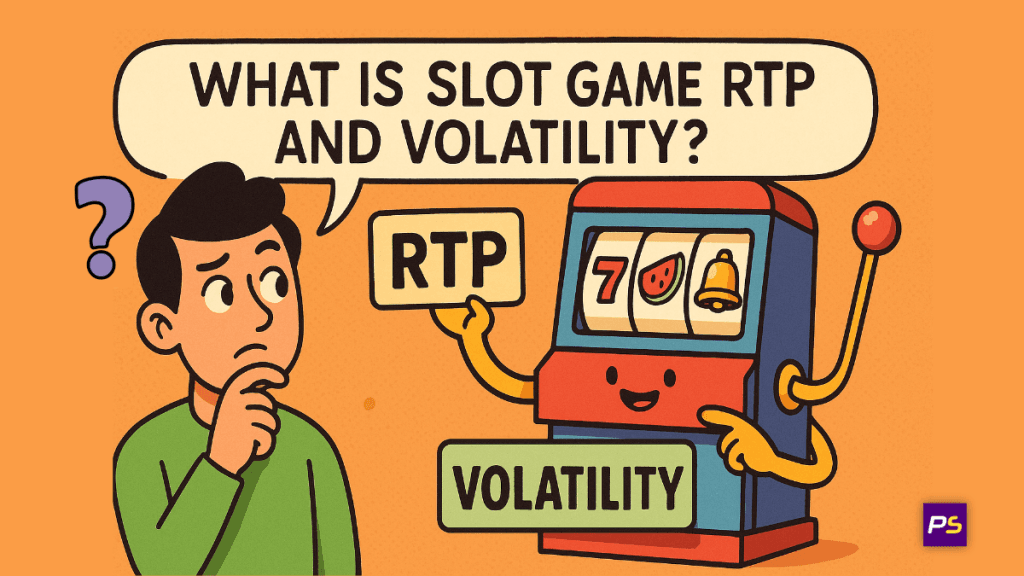How Do Online Slots Work?

Ah, the humble online slot game. Flashy reels, catchy tunes, and the promise of big wins in a few clicks, what’s really going on behind the scenes? What makes online slot games work? Let’s break it down, without the fluff, to find out how these games work.
It’s not magic, just maths (and a bit of code)
Every spin on a legit online slot is powered by a Random Number Generator, or RNG for short. It’s basically a super-fast calculator that spits out thousands of random results every second, even when you’re not clicking anything.
When you press spin, the RNG grabs the numbers it’s on at that exact moment, matches them to symbols on the reels, and voilà, your result appears. No memory, no emotion, no plotting behind your back. It doesn’t care if you’ve won 10 times or lost for hours.
But what about paylines and symbols?
Symbols are the images that appear on the reels when you spin. These can include standard icons like fruits or numbers, as well as special ones like wilds and scatters that trigger bonuses or free spins.
Paylines are the specific lines or patterns across the reels that determine winning combinations. If matching symbols land on an active payline in the correct sequence, usually from left to right, you get a payout. Some games have fixed paylines, while others let you choose how many to activate. Modern slots might also use systems like “243 ways to win,” where any matching symbols on adjacent reels can form a win, without needing to follow traditional lines.
Some modern slots ditch fixed paylines and go with “ways to win” instead—meaning as long as matching symbols land from left to right, you’re in the money. Others get a bit wild (pun intended) with Megaways or cluster pays, but we’ll leave that rabbit hole for another day.

And RTP? Volatility? Sounds like casino jargon…
You’re not wrong. But here’s a quick cheat sheet:
- RTP (Return to Player): This is the percentage of total bets a slot is theoretically set to return over time. So if the slot game RTP says 96%, it means that over the long haul, R96 out of every R100 goes back to players (spread out unevenly, of course). You’re not guaranteed anything—it’s just the average over millions of spins.
- Volatility (or variance): This indicates the level of risk associated with a game. High volatility means you’ll win less often, but when you do, the payouts can be much bigger. Low volatility means you’ll land wins more frequently, but they’ll usually be smaller. Think of it like choosing between a luxury sports car with bursts of speed and a steady, fuel-efficient hatchback—one’s flashy but unpredictable, the other’s reliable but rarely thrilling.
Can the casino mess with the results?
Short answer: No, if you’re playing at a licensed, regulated online casino. The RNGs are tested by independent labs, such as eCOGRA or iTech Labs, and casinos cannot simply adjust them at will.
Play at a shady site, though, and all bets are off. Literally.
So… is it all luck then?
Mostly, yes. Slots are pure chance. No skill, no strategy (unless you count bankroll management and picking the right games). You can’t “beat” a slot. However, you can opt for games with decent RTPs, fair volatility, and perhaps some engaging features to keep it interesting.
And let’s be honest, part of the fun is not knowing what’s coming next, right?




